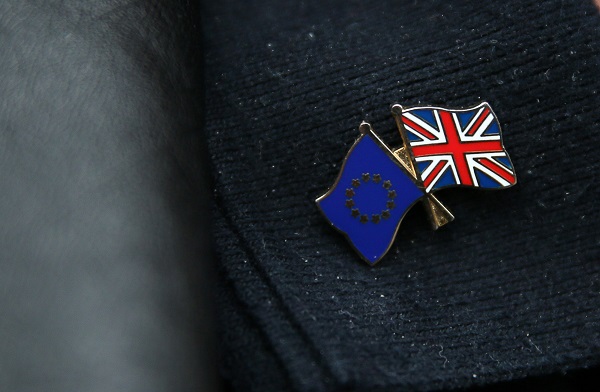UK varsities mull possible post-Brexit coping strategies
Published : 29 Oct 2018, 21:22
Updated : 29 Oct 2018, 21:24
After Brexit, universities in Britain will face challenges of declining student numbers and losing access to European Union (EU) research funding, but they have the chance to develop a solution, Lu Gaoqing, the president and vice-chancellor of the University of Surrey, has told Xinhua.
NEW STRATEGY TO DRAW INTERNATIONAL STUDENTS
Lu, the first Chinese academic to lead a UK university, says the whole higher education sector of Britain is now discussing the possible impact of Brexit as many universities believe that there would be a smaller number of EU students.
Citing University of Surrey figures, Lu estimated there would be a reduction of at least half of its current 1,300 students from the EU.
Founded in the 1960s and located in Guildford, Surrey, the public research university specializes in science, engineering, medicine and business. Approximately 5,500 foreign students are currently enrolled, out of a student headcount of 18,000. At the moment, students from EU countries are treated as UK students and pay a home fee. But once Britain is out of the EU, "we will see the demand plummet because they have to pay a full international tuition fee," said Lu.
As a board member of Universities UK, the representative organization for UK's universities, Lu said the organization has been talking about possibilities of offering a discount or a scholarship to attract as many future EU students as possible.
"Depending on the deal that the UK will have with the EU, there may or may not be a new policy to support the European students," he told Xinhua, "But then there is always an issue -- the fairness to other international students. You may damage your other international markets if you say we will give preferential treatment to EU students by giving a tuition fee waiver or discount. It is very, very tricky."
He said the UK universities need to develop strategies to look at how to increase other international student numbers to compensate for the loss of the EU students.
"We will definitely continue to have some EU students, however, we are also preparing to increase international students from China, India, the Middle East, Southeast Asia and also Latin America," he said.
MORE FUNDING FOR RESEARCH
When working at the University of Queensland, Australia, as a double Highly Cited Researcher in both materials science and chemistry, Lu has published over 500 journal papers and founded the Australian Research Council Centre of Excellence for Functional Nanomaterials where he served as director for eight years.
After coming to the UK, he has been appointed to the Prime Minister's Council for Science and Technology (CST), and served on boards of UK Research and Innovation, and National Physical Laboratory.
He said that besides the possible decrease of EU student numbers, another major concern for UK universities is the challenge of losing access to EU research funding. But he said the UK government was considering injecting more investment into R&D if it fails to reach a good exit deal with EU.
"One of the key agenda items of the Board of UK Research and Innovation is to discuss how the country can prepare for a post-Brexit situation without EU funding," Lu said. "We are discussing a new deal, as an associate membership country, or we are going to set up our own global fund."
Lu has worked closely with the UK government ministers on the CST. He said the UK government has committed more money to research, innovation and commercialization of technology post-Brexit.
"The CST is working to develop the road map on how are we going to get there, where is the money coming from, and what will we spend the money on. And that is going to see a tremendous uplifting in the total amount of money invested in research and development. We are talking about 2.4 percent of GDP by 2027, which is very significant," Lu said, something he sees as a great opportunity for the higher education institutions post-Brexit.
NOT TO BECOME SLAVES OF RANKING
Talking about university rankings, Lu said every ranking system has its flaws therefore the ranking itself should not be the drivers for any university.
He believes that if a university does well in educating its students and in research, making a greater contribution to society, it should be doing very well in any league tables.
However, he recognized that rankings, no matter how imperfect they might be, will remain a reference point for prospective students and their parents. So "in a way we cannot ignore the rankings, but we should not become the slaves of rankings."
He said that higher educational institutions should focus on the long-term strategy to deliver the excellent education and experience for students as well as impactful research and innovation.
"I think rankings play a role in students' choice in selecting universities. We have to pay attention to the underlying factors behind the rankings. When you understand what actually contributes to a bad experience for the student, you do more work and more investment, you care more about the students' learning journey and learning outcomes," Lu added.


